Quality concern
Statistics from the Ministry of Education and Training show that the number of candidates registering for the 2025 high school graduation exam is History, accounting for over 45% of the total number of candidates, followed by Geography, Foreign Languages, Economic and Legal Education, Physics, Chemistry, etc. In 2024, over 60% of students chose the social science exam (History, Geography, Civic Education), nearly 40% chose the natural science exam (Physics, Chemistry, Biology) in the high school graduation exam. In 2023, the selection rate of candidates is similar.
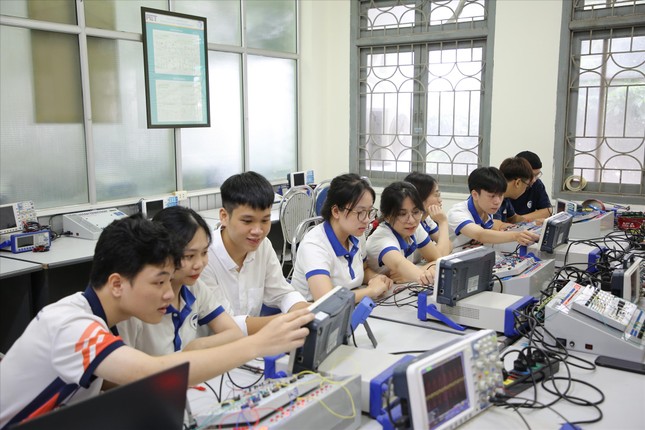 |
A group of students from the University of Technology (Vietnam National University, Hanoi) working in a research lab. Photo: ANH THU |
Before the national high school exam (before 2015), the trend of candidates choosing natural science subjects when taking the 3 common exams for university admission was natural science subjects. At that time, the scores of natural science subjects were often higher than those of social science subjects. Explaining this shift, Mr. Do Duc Dung, Director of Samsung R&D Center Vietnam Software Solutions Department, said that on the positive side, the cause stems from the fact that teaching and learning social science subjects is getting better day by day. More practically, students are allowed to express and argue according to their own thoughts, reducing the situation of copying, memorizing and achieving high scores by "measuring the length of the essay for grading - PV). Through that, students have better scores in social science subjects than in natural science subjects, so the shift in choice for university admission is positive and does not affect the quality of human resources.
On the contrary, according to Mr. Dung, if the trend of choosing social science subjects for admission is simply because these subjects are easier to get higher scores than natural science subjects while the teaching and learning methods have not changed much, then this is a cause for concern. Universities then must certainly come up with more solutions to be able to select students with real knowledge to meet the needs.
Dr. Pham Hiep, Thanh Do University, commented that the Central Resolution 57 on breakthroughs in scientific and technological research has marked the important role of STEM education, creating future science and technology human resources. The country wants to develop science and technology, it must rely largely on STEM human resources. Currently, the number of students registering to study STEM is on the decline. In terms of policy, adjustments are needed to create attractiveness for these majors. Mr. Hiep analyzed that the selection rate of candidates of 60% - 40% as above does not say much. But when the entrance standard score tends to decrease as it is now, it is very worrying.
According to Professor Chu Duc Trinh, Resolution 57 is similar to Contract 10. If Vietnam's university system goes along with this policy, in the near future, Vietnam will have a high-quality team of international technical and technological human resources.
Priority investment after college
According to Dr. Do Duc Dung, since 2010, there has been a situation where 9/10 candidates choose economics, 1/10 candidates choose engineering. This choice is market-oriented, at that time, banks required a large human resource. Later, the information technology and artificial intelligence (AI) industries took the lead, and now with the Government's strategic orientation, high-tech and semiconductor industries are attracting the attention of society. "Thus, it seems that the choice of major of Vietnamese students is influenced by income when they go to work. Only when reality happens, for example, students graduating from semiconductor majors have high incomes, then candidates flock to study natural sciences," Mr. Dung shared. He believes that no warning is as powerful as specific policies.
Dr. Pham Hiep said that for STEM industries to develop, three factors need to converge: policies, job opportunities and universities that ensure quality training. Mr. Hiep proposed that there should be deep intervention from the State in terms of quantity and quality of input; scholarships, financial support as well as better propaganda orientation. For example, Decree 116 (policy on tuition exemption and living expenses support for pedagogical students) was issued, the pedagogical industry has changed in terms of quality and quantity by attracting a large number of excellent candidates to the industry.
Mr. Hiep said that the Government needs to provide stronger support. For example, it is possible to divide the STEM industry into two to have appropriate policies. The group of basic science industries such as Mathematics, Physics, Chemistry, Biology, Earth Science has very few training schools (Hanoi University of Science and Technology, University of Natural Sciences (2 National Universities), University of Mining and Geology, the system of pedagogical universities), the total quota is only a few thousand students, and scholarships and living expenses can be provided like pedagogical students.
Market-oriented STEM majors such as engineering, electronics, and information technology can invest in research projects and support postgraduate training. Dr. Pham Hiep emphasized postgraduate STEM training. For these majors, the undergraduate training level is not enough. Currently, STEM majors have a gap in domestic postgraduate training because good PhD students often go abroad to study for a doctorate. There must be a program to retain a part of this team to do research in the country.
Mr. Hiep assessed that the quality of university education in Vietnam has improved, some universities have reached the world's top, many majors have been internationally accredited, many young lecturers have been trained abroad and returned to work in the country. The leaders of research groups at Vietnamese universities are not inferior to those at international universities, but they need policy resources to support them.
Prof. Dr. Chu Duc Trinh, Rector of the University of Technology (Vietnam National University, Hanoi) said that post-graduate STEM human resources are very important for the development of science, technology, economy and society of the country. Because this is the force that ensures the quality of university training and has enough capacity and qualifications to meet the increasingly high and specialized requirements of the labor market. Mr. Trinh shared that the University of Technology has implemented a project to innovate and improve the quality of postgraduate training. According to this project, graduate students (master's students) are granted scholarships equivalent to tuition fees and are supported with living expenses of 5 million VND/month. For postgraduate students (doing doctoral studies), they are granted scholarships equal to tuition fees and supported with living expenses of 7 million VND/month.
Source: https://tienphong.vn/it-hoc-sinh-chon-thi-cac-mon-stem-canh-bao-chat-luong-nguon-nhan-luc-post1741314.tpo


![[Photo] Prime Minister Pham Minh Chinh starts construction of vital highway through Thai Binh and Nam Dinh](https://vphoto.vietnam.vn/thumb/1200x675/vietnam/resource/IMAGE/2025/5/12/52d98584ccea4c8dbf7c7f7484433af5)


![[Photo] Prime Minister Pham Minh Chinh works with the Standing Committee of Thai Binh Provincial Party Committee](https://vphoto.vietnam.vn/thumb/1200x675/vietnam/resource/IMAGE/2025/5/12/f514ab990c544e05a446f77bba59c7d1)
![[Photo] Prime Minister Pham Minh Chinh receives Swedish Minister of International Development Cooperation and Foreign Trade](https://vphoto.vietnam.vn/thumb/1200x675/vietnam/resource/IMAGE/2025/5/12/ae50d0bb57584fd1bbe1cd77d9ad6d97)



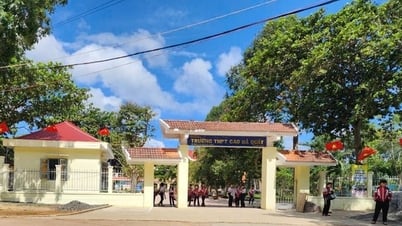
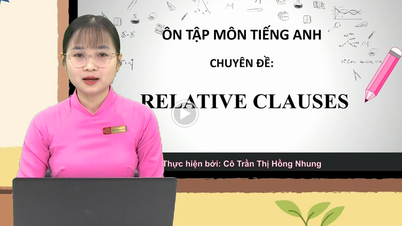






























































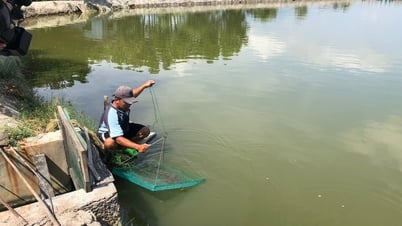


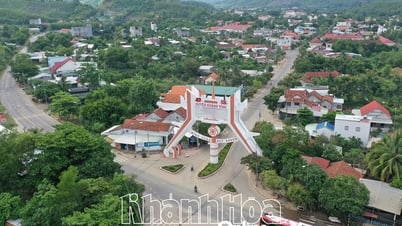














Comment (0)